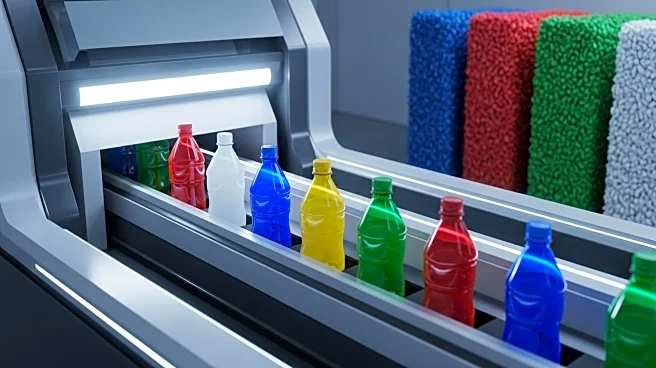What's Happening?
Researchers at Northwestern University have developed a new nickel-based catalyst that could revolutionize plastic recycling by eliminating the need for sorting. This catalyst selectively breaks down polyolefin plastics, which are prevalent in single-use items, into liquid oils and waxes that can be upcycled into higher-value products. The catalyst is effective even with plastics contaminated by polyvinyl chloride (PVC), a polymer that typically renders plastics unrecyclable. This breakthrough could make recycling more efficient and economically viable.
Why It's Important?
The development of this catalyst addresses one of the major challenges in plastic recycling: the labor-intensive sorting process. By simplifying the recycling process, it could significantly increase recycling rates for polyolefin plastics, which currently have low recycling rates. This advancement has the potential to reduce plastic waste in landfills and the environment, mitigating the impact of microplastics. It also offers economic benefits by transforming low-value waste into valuable products, potentially driving innovation and sustainability in the recycling industry.
What's Next?
The research team plans to further test and refine the catalyst to ensure its effectiveness and scalability for industrial use. If successful, this technology could be adopted by recycling facilities, leading to widespread changes in how plastic waste is managed. Stakeholders in the recycling industry, including policymakers and environmental groups, may advocate for its implementation to enhance sustainability efforts.









